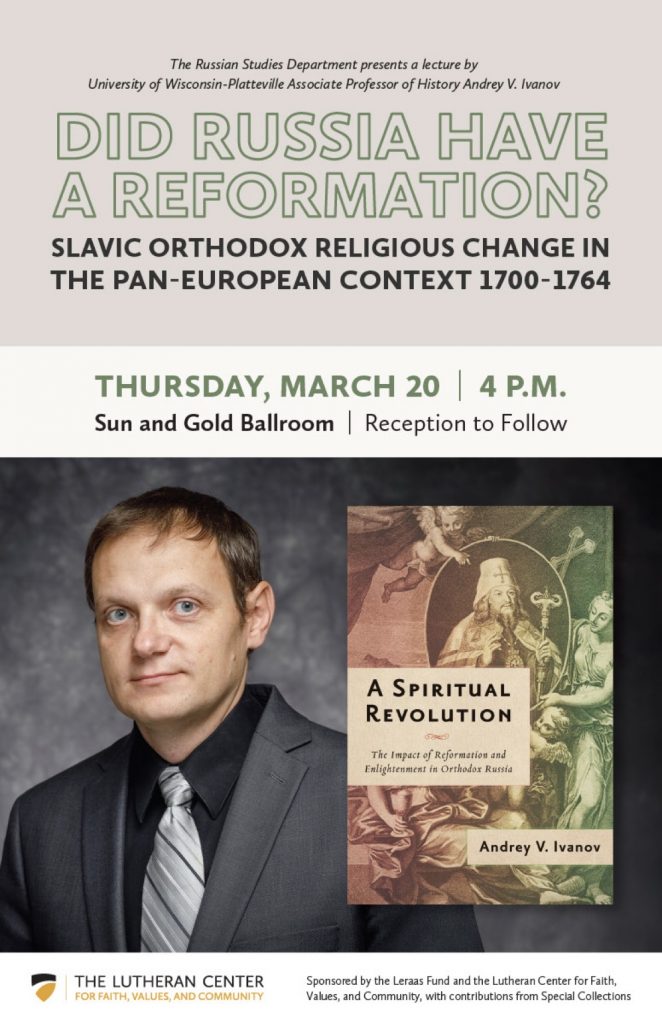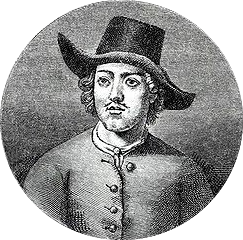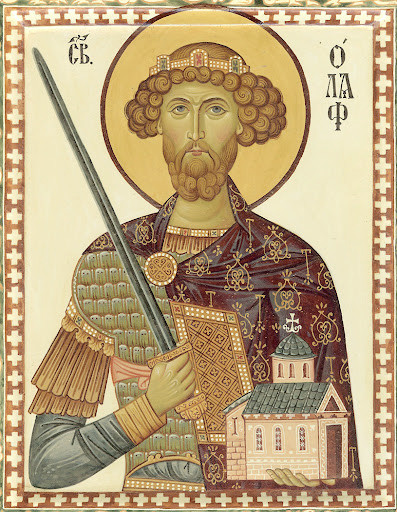
In mid-March, the Russian Studies Department invited Dr. Andrey V. Ivanov to St. Olaf to give a public lecture on his recent book, A Spiritual Revolution: The Impact of Reformation and Enlightenment in Orthodox Russia, 1700–1825. Dr. Ivanov’s lecture was followed by a reception and exhibition of 17-18th c. Protestant theological works drawn from Rolvaag Special Collections and curated by Jillian Sparks.
Dr. Ivanov also gave a guest lecture on Russia’s Orthodox Enlightenment in Prof. Morse’s course, “Mystics & Madmen: An Introduction to Russian Intellectual History.”
Support for Dr. Ivanov’s visit was provided by the Leraas Fund and the Lutheran Center.


